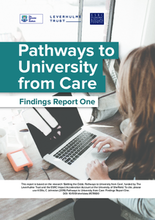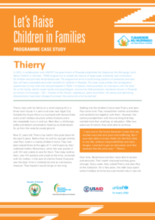Displaying 81 - 90 of 349
The purpose of this study was to use record linkage of birth cohort and administrative data to study educational outcomes of children who are looked-after (in public care) and in need (social services involvement), and examine the role of early life factors.
The current study employed thematic analysis to explore Massachusetts foster youth’s academic challenges and supports through interviews with teachers, foster parents, former foster youth, and three individuals who were both teachers and foster parents.
Using a case study approach, this article will review a pre-college summer program designed specifically for youth transitioning from foster care, the National Social Work Enrichment Program (NSEP).
The authors of this study conducted research with 234 care experienced university students in England and Wales to explore the factors that promoted access to higher education.
To help increase the college preparation of local foster youth in a Midwestern city in the US, the authors developed a working group comprised of foster youth nominated by agency staff, staff from a university research center that sponsored and coordinated the program, local community leaders who work with foster youth, and city government representatives.
The authors of this article discuss implementing critical-theoretical pedagogy within a collaborative transformative project in a foster care program in the U.S. to showcase the activist role of the educator in providing tools of agency for youth struggling against oppression.
This paper examines strategies currently being implemented in early care and education (ECE) to address early childhood trauma.
This case study profiles the reintegration experiences of one child who has participated in the Tubarerere Mu Muryango (Let’s Raise Children in Families - TMM) programme in Rwanda.
This qualitative study uses speech act categories and stages of concern to examine the voices of concern, of teachers and caregivers towards the academic performance of foster children in Malaysia.
This paper explores how the principle of linked lives can illuminate our understanding of how relationships positively influence the educational journeys of adults with care experience over time.




